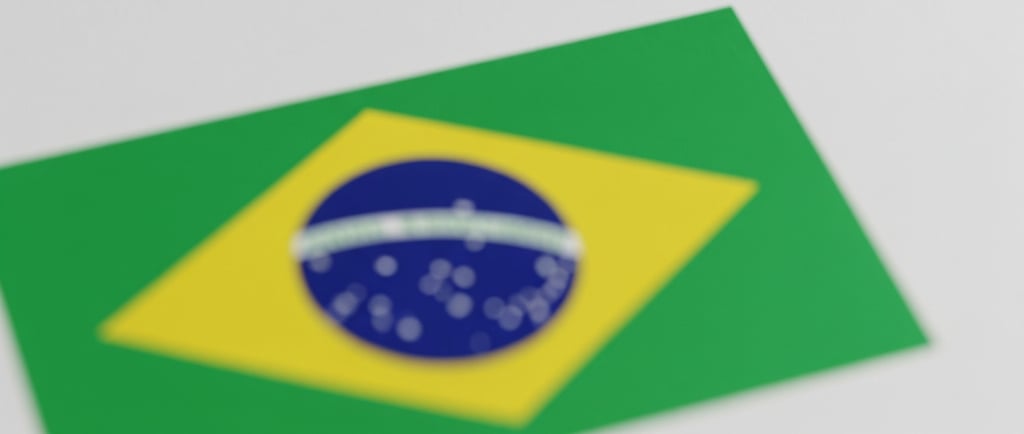Defending Your Madrid Application in Brazil: Understanding Provisional Refusals and How to Protect Your Trademark
Learn how to handle a provisional refusal from INPI when registering your trademark in Brazil through the Madrid Protocol. Discover why refusals occur, how to respond, and key strategies to protect your brand.
Laila dos Reis Araujo
11/6/20253 min read


When the Brazilian Patent and Trademark Office (INPI) issues a provisional refusal, many foreign applicants do not know exactly what to do and how to proceed. I received a lot of questions as Brazilian trademark lawyer and for this reason this article explains what a provisional refusal means under Brazilian law, why it happens, how to respond effectively, and how to safeguard your trademark in Brazil.
2. The Madrid Protocol and INPI’s Role in Brazil
Brazil joined the Madrid Protocol in 2019, allowing trademark owners to extend their international registrations to the Brazilian territory.
Despite the international filing route, each designated country conducts its own substantive examination.
In practice, this means that while WIPO manages the formal aspects and communication, the INPI independently examines the mark according to Brazilian law, including both absolute and relative grounds for refusal.
Understanding this distinction is critical: your Madrid designation in Brazil is treated as a national application for all legal and procedural purposes once it reaches INPI.
3. What Is a Provisional Refusal?
A provisional refusal is a formal notification from INPI to WIPO indicating that your trademark, as filed through the Madrid Protocol, does not comply with Brazilian legal requirements.
The two main reasons for a provisional refusal in Brazil are: existence of a prior identical or similar trademark already registered or filed in the same class; and lack of distinctiveness or descriptive terms;
However, there are other reason described in the Brazilian law like the register of slogans, colors, geographical indication.
Why this surprises foreign applicants? Unlike in many jurisdictions, Brazil examines conflicts with prior marks ex officio — meaning that INPI itself refuses applications that may conflict with earlier rights, even if no third party files an opposition.
This is different from the European Union Intellectual Property Office (EUIPO), which does not reject marks based on earlier rights, relying instead on oppositions.
As a result, a trademark that coexists in Europe may face refusal in Brazil due to stricter ex officio examination standards.
4. How to Respond to a Provisional Refusal in Brazil
When INPI issues a provisional refusal through WIPO, the applicant has 60 days from the publication date to respond.
Importantly, foreign applicants must appoint a local representative or law firm in Brazil to file the response and all communications with INPI must be made in Portuguese.
A strong response may include:
Legal arguments demonstrating the coexistence or distinctiveness of the mark;
Adjustments to the list of goods/services to avoid overlap with prior marks;
Evidence of use or acquired distinctiveness;
Clarifications or formal corrections.
If the INPI maintains its decision after the response, it is possible to challenge the decision before specialized courts in Brazil.
5. Strategic Considerations for Madrid Applicants:
Rely on local attorneys familiar with INPI procedures: Local expertise is crucial to drafting persuasive responses and managing timelines under Brazilian administrative law. Moreover, the Brazilian law has a disposition that says that foreigners applicants must have a local lawyer. It is true that it is possible filing the trademark without local attorney but this is illegal since this disposition is still in force.
Conduct a local clearance search before designating Brazil:Because of Brazil’s ex officio examination, a preliminary trademark search in the INPI database is highly recommended. This can help identify potential conflicts and avoid unnecessary refusals.
Adapt your specification of goods and services: Although the Nice Classification applies, INPI applies it with a local interpretation. Broad or generic descriptions often trigger objections.
Monitor INPI publications
Even after responding to a refusal, it is essential to follow the INPI Official Gazette (RPI) to track updates, oppositions, and deadlines. Moreover, INPI doe not notify WIPO about oppositions, this is only published on the Official Gazette.
6. Preventing Future Refusals and Strengthening Brand Protection
Plan early: Review your international filing strategy before adding Brazil under the Madrid Protocol.
Prioritize distinctiveness: Avoid generic or descriptive terms, especially in Portuguese.
Monitor competitors: Watch INPI filings to prevent confusingly similar marks.
Renew on time: Brazilian registrations are valid for 10 years and can be renewed indefinitely.
Taking proactive measures ensures smoother protection of your trademark in Brazil and minimizes costly disputes.
At Reis Araujo, our Intellectual Property team assists international clients with all aspects of trademark protection in Brazil, including:
Responding to INPI provisional refusals under the Madrid Protocol;
Conducting trademark clearance searches and risk assessments before filing;
Handling appeals, oppositions, and enforcement actions;
Managing renewals and portfolio maintenance in Brazil.
Contact us to discuss your Madrid application or to obtain an initial assessment of your trademark in Brazil.


